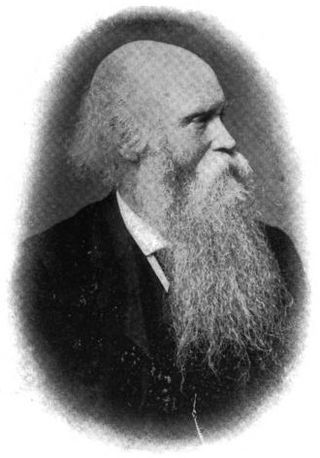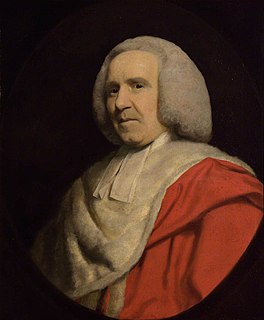
John Couch Adams was a British mathematician and astronomer. He was born in Laneast, near Launceston, Cornwall, and died in Cambridge.

The lord president of the Council is the presiding officer of the Privy Council of the United Kingdom and the fourth of the Great Officers of State, ranking below the Lord High Treasurer but above the Lord Keeper of the Privy Seal. The Lord President usually attends and is responsible for chairing the meetings of the Privy Council, presenting business for the approval of the sovereign. In the modern era, the incumbent is by convention always a member of one of the Houses of Parliament, and the office is normally a Cabinet position.

Sir George Biddell Airy was an English mathematician and astronomer, and the seventh Astronomer Royal from 1835 to 1881. His many achievements include work on planetary orbits, measuring the mean density of the Earth, a method of solution of two-dimensional problems in solid mechanics and, in his role as Astronomer Royal, establishing Greenwich as the location of the prime meridian.

James Challis FRS was an English clergyman, physicist and astronomer. Plumian Professor of Astronomy and Experimental Philosophy and the director of the Cambridge Observatory, he investigated a wide range of physical phenomena though made few lasting contributions outside astronomy. He is best remembered for his missed opportunity to discover the planet Neptune in 1846.
The Plumian chair of Astronomy and Experimental Philosophy is one of the major professorships in Astronomy at Cambridge University, alongside the Lowndean Professorship. The chair is currently held at the Institute of Astronomy in the University. The Plumian chair was founded in 1704 by Thomas Plume, a member of Christ's and Archdeacon of Rochester, to "erect an Observatory and to maintain a studious and learned Professor of Astronomy and Experimental Philosophy, and to buy him and his successors utensils and instruments quadrants telescopes etc."

Roger Long was an English astronomer, and Master of Pembroke College, Cambridge between 1733 and 1770.
Regius Professorship of History is one of the senior chairs in history at the University of Cambridge. It was founded in 1724 by George I as the Regius Professorship of Modern History.

The Jacksonian Professorship of Natural Philosophy is one of the senior chairs in Natural and Experimental philosophy at Cambridge University, and was founded in 1782 by a bequest from the Reverend Richard Jackson.
The Knightbridge Professorship of Philosophy is the senior professorship in philosophy at the University of Cambridge. There have been 22 Knightbridge professors, the incumbent being Rae Langton.

Sir Robert Stawell Ball was an Irish astronomer who founded the screw theory. He was Royal Astronomer of Ireland at Dunsink Observatory.

The position of Savilian Professor of Astronomy was established at the University of Oxford in 1619. It was founded by Sir Henry Savile, a mathematician and classical scholar who was Warden of Merton College, Oxford, and Provost of Eton College. He appointed John Bainbridge as the first professor, who took up his duties in 1620 or 1621.

Samuel Vince FRS was an English clergyman, mathematician and astronomer at the University of Cambridge.
The Regius Chair of Astronomy is a Regius Professorship in the University of Glasgow.

Ralph Copeland FRSE FRAS was an English astronomer and the third Astronomer Royal for Scotland.

The position of Savilian Professor of Geometry was established at the University of Oxford in 1619. It was founded by Sir Henry Savile, a mathematician and classical scholar who was Warden of Merton College, Oxford, and Provost of Eton College, reacting to what has been described by one 20th-century mathematician as "the wretched state of mathematical studies in England" at that time. He appointed Henry Briggs as the first professor. Edward Titchmarsh said when applying that he was not prepared to lecture on geometry, and the requirement was removed from the duties of the post to enable his appointment, although the title of the chair was not changed. The two Savilian chairs have been linked with professorial fellowships at New College, Oxford, since the late 19th century. Before then, for over 175 years until the middle of the 19th century, the geometry professors had an official residence adjoining the college in New College Lane.

William Lax was an English astronomer and mathematician who served as Lowndean Professor of Astronomy and Geometry at the University of Cambridge for 41 years.

John SmithD.D. was a British academic and astronomer.
The Andrews Professor of Astronomy is a chair in astronomy in Trinity College Dublin was established in 1783 in conjunction with the establishment of Dunsink Observatory.
The Sir David Williams Professorship of Public Law is a professorship in English public law, and one of 21 professorships in law at the University of Cambridge. It is named in honour of Sir David Williams, who was Rouse Ball Professor of English Law and Vice-chancellor of the University of Cambridge, and was created with the aim of reflecting and reinforcing the tradition of public law at Cambridge. The professorship is funded with contributions from Sir David Li, the Li family, Robinson College, Cambridge, described at the time as "the most significant benefaction to the Faculty in recent times".












